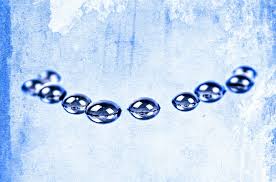Why conduction of electricity happens in water, but not in air?« Back to Questions List
|
Conduction occurs when there is a difference in electrical potential between two points and electric charges move through the medium in response to an applied electric field. Conduction happens only when there are sufficient free moving electric charges. Presence of free charges like electrons or ions is essential for transmission of electricity. Ions are formed by addition or removal of electrons to/ from neutral atoms.
Electric conduction can be classified under three categories: Ionization is the process of removal of an electron from a neutral atom making it a positive ion (positive charge) or addition of electrons to a neutral atom making it a negative ion (negative charge). Ionic conduction is the reason for the conductivity of water. Water, H2O, in liquid state is a polar molecule. Water gets dissociated to positively charged H+ and negatively charged OH- ions which are present in water even without application of any external electric field. On application of an electric field, presence of ionic charge and the electric field causes movement of ions in water. They collide with other similarly charged ions and take a steady flow causing electric current transmission in water. If water contains common salt (sodium chloride), the conductivity is enhanced as it easily disassociates into freely moving sodium ions and chloride ions. Water always contains some kinds of salts and ions. Further, energy required to convert the salts into their ions is less. Air does not contain any such charged ions. Air consists mainly of nitrogen molecules and oxygen molecules. Traces of other gases are also present in air. Atoms of these molecules are strongly bonded and do not easily disintegrate as in the case of water. Hence, application of an ordinary electric field does not result in electric transmission in normal course. Then what about lightning?
Under certain specific conditions air too permits transmission of electricity. In favourable temperature and pressure conditions, if a high electric field is applied to air, there are chances of oxygen and nitrogen molecules disintegrating into ions and electrons. The resultant conduction is normally in the form of short living sparks of high power. If the air is moist and contains polar water molecules H+ and OH- in air, the transmission is easier. Dry air does not conduct electricity normally. In air, number of charge carriers is less compared to water and unless the conditions are highly favorable, conduction does not happen What is a voltmeter?What are the major applications of remote controls?
|

